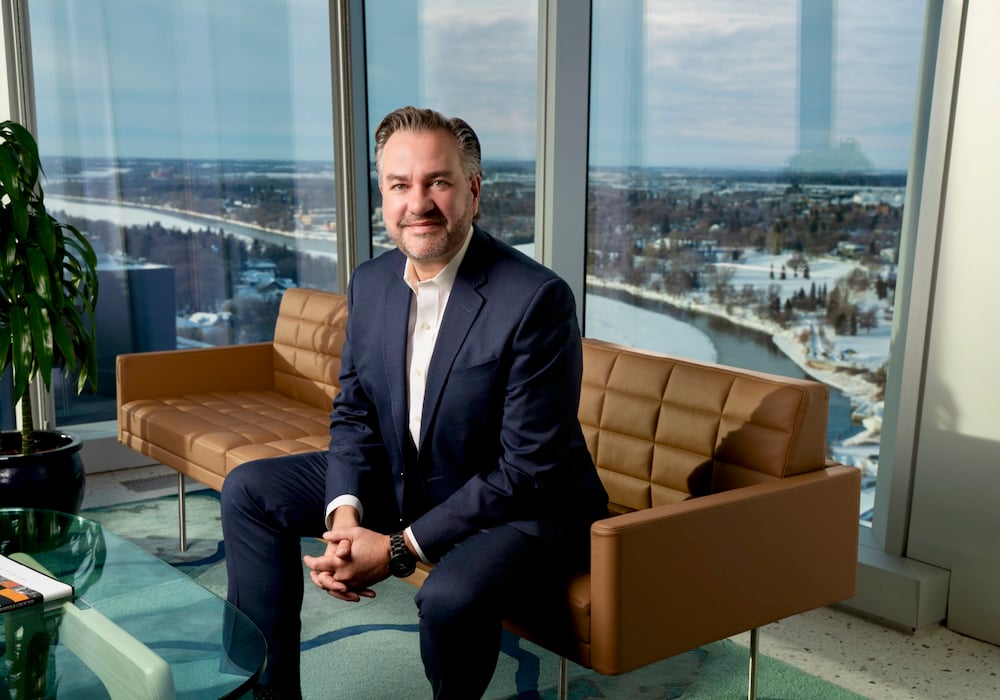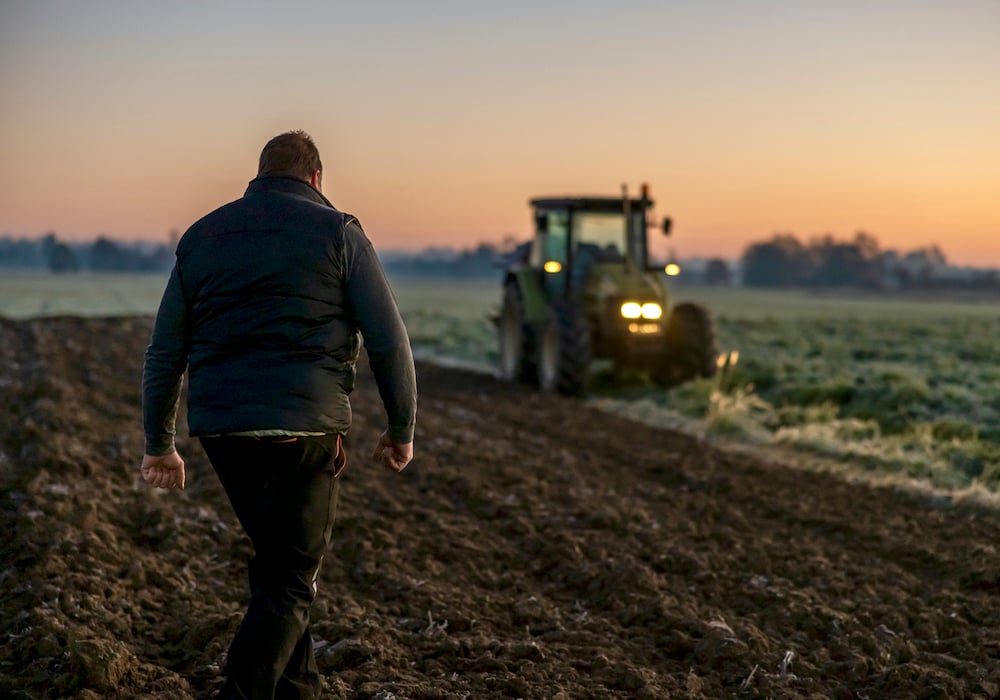Nutrien CEO sees sustainable way forward for Canadian agriculture

Nutrien Ag Solutions CEO Ken Seitz says Canadian farmers can be leaders in the global movement for agricultural sustainability.
Read Also


Peer to peer support can help avoid mental health crises
Suicide is not uncommon in farm country. Reducing the frequency of such tragedies is the goal of the Guardian Network,…
In a one-on one interview with Farmtario, he spoke about the company’s goals for sustainable agriculture in Canada.
Why it matters: Private sector support can drive on-farm sustainability goals.
Nutrien is the world’s largest provider of crop inputs and agricultural services, with around 400 crop consultants worldwide and 150 million acres that touch 500,000 grower accounts. Seitz assumed the role of CEO in 2022, after serving as head of the potash business.
The company has announced plans to launch a comprehensive carbon program by 2030.
Seitz said Nutrien is working with partners like John Deere to get data information from soil sampling and variable-rate precision ag technology. This helps with its 4R stewardship plan.
Several technologies like slow-release nitrogen fertilizer and biostimulants will further the company’s carbon goals.
“A number of technologies and best practices that we can deploy on the acres under what we’re calling our carbon pilot to generate a high-quality carbon credit for the grower, and we’re demonstrating that as we speak,” he said.
“As a matter of fact, we’ve just sold some carbon offsets to the Royal Bank in the U.S. into the voluntary market.”
Importance of incentives
Seitz said Canadian producers are unlikely to adopt sustainability initiatives without proper incentive.
“There is a hump to get over. The idea that farmers are going to do all of that without some incentive, I mean, I would agree with them, why would they do that?
“So, it’s creating those incentives, creating the understanding of the science and the technology. It’s getting the MRV (measuring, reporting, verification) pieces in place, and that whole ecosystem needs to come together on that acreage because the farmer’s livelihood is at stake here.”
He said the federal government has been attentive to these needs.
“I would say that the Government of Canada is rightly focused on these outcomes on the farm and is focusing on them with OFCAF (On-Farm Climate Action Fund) and with an attempt to create some of those incentives on the farm.”
Conversations about sustainability can often skew to a narrow definition, said Seitz.
“When we talk about sustainability on the farm, I think that many people just immediately jump to climate. And of course, that’s a huge piece of it, but when we talk about sustainability, … climate is only one component of sustainable and regenerative agriculture on the farm.”
He listed water quality, runoff and soil health as other components.
When discussing sustainability, yield is part of it, he added.
“We have a planet to feed here and we’re going to have to produce more food between now and 2050 than we have in the last 10,000 years. There’s 2.4 billion food insecure people on the planet today, so while we talk about sustainable outcomes on the farm, we need to do that in the name of yield.”
Although adaptation can be difficult, Seitz said Canadian farmers are not resistant to change.
“I’m really quite proud of the Canadian farmer. The level of innovation in agriculture in Canada, I mean, I really think it’s kind of world-leading.”
The skepticism some farmers may feel should be not equated with an apprehension to innovate, he added.
“I just think that farmers are skeptical and are thorough. Farmers just want to understand that the things that they’re doing are sustainable over the long term, and are good for their farm for the long term.
“Look at the innovations as it relates to farm equipment, and zero-till/no-till technology … I could go on and on. If farmers weren’t willing to adopt these technologies, we would all be in a food security crisis.”
Source: Farmtario.com

